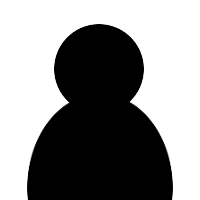Kanji is a freakin headache!

xueli @xueli
commented on
Kanji is a freakin headache!
xueli @xueli
oh wait memorizing the meanings. Hahaha, didn't read properly. Then... mmm dunno. Do the have context clues in the characters like four dots are water related and so on?

Deleted User @__removed_2febdcff2cGILeMdar
commented on
Kanji is a freakin headache!
Deleted User @__removed_2febdcff2cGILeMdar
This account has been suspended.

xueli @xueli
commented on
Kanji is a freakin headache!
xueli @xueli
I know chinese is hard for westerners because we have 4 tones that makes what sounds like the same word different. Hahaha, they like to hear all the tongue twisters like 4 is 4, 10 is 10, 14 is 14, 40 is 40, 44 is 44. It sounds like we're just saying shi shi shi shi over and over again. I wouldn't say that just because a language is structured a certain way that's different from another that you'll be smarter. English was my second language and I thought it was a pain. Even with all the symbols, we still start with an alphabet like system of sounds that make the character. If you look at Japanese children books, they have very simple kanji with hiragana on the side and then in Chinese it's even more symbols written on the side of the character. Gradually you'll learn more commonplace characters and more advanced ones just like how you start off with simple words in english and gradually learn and implement more complex vocabulary. All children pick up language fast because the neural synapsis in your brain hasn't closed down, which happens gradually as you get older. It doesn't mean you can't become fluent in another language, just that you have to work a little harder at it.

Locked. @masuji
commented on
Kanji is a freakin headache!
Locked. @masuji
Xueli is right, there are radicals that help identify how something may sound, but I just use a Hanzi-pinyin converter to identify unknown characters I do not know. 麻 is an example i use, Má, the pronunciation of that character, means Marijuana. It just so happens to be a shade over two plants.

xueli @xueli
commented on
Kanji is a freakin headache!
xueli @xueli
Haha 大麻

Phoenix @animecountryboy
commented on
Kanji is a freakin headache!
Phoenix @animecountryboy
I am not a kanji hater, just takes me a bit to memorize them

Espelancer @espelancer
commented on
Kanji is a freakin headache!
Espelancer @espelancer
I think the trick is to not try so hard to memorize them. Just learn them like you would learn Japanese vocabulary normally, and do a lot of reading. Simply from practicing vocabulary and reading Japanese novels and manga, and playing Japanese RPG's, I can recognize about 400 kanji. Writing them on demand is a different story, but I think literacy is more important for a foreigner learning Japanese.

Tazzii @tazzii
commented on
Kanji is a freakin headache!
Tazzii @tazzii
Try imagine them as little pictures~
I have 432 Kanji to memorize before my Exam T^T

Yuusaku @yuusaku_godai
commented on
Kanji is a freakin headache!
Yuusaku @yuusaku_godai
My advice would be to get familiar with the radicals. They pop-up a lot and it might help you guess the meaning of a Kanji. However that's not always the case but might point ya in the right direction. <BR>Plus you can use post-its to label things in your home with the Kanji and Furigana. One thing that might want to spend some time is the Kun-yomi and On-yomi pronunciation of Kanji character. <BR>Kun yomi means the Japanese pronunciation of a Kanji and On-yomi means the Chinese pronunciation of a kanji. When Kanji are compounded they will take on a new pronunciation based on the On-yomi. Work on your photographic memory. When you practice Kanji, don't think of it as "drawing" a character. You are "writing" a language. You want to stimulate the right areas of the brain.

Yuusaku @yuusaku_godai
commented on
Kanji is a freakin headache!
Yuusaku @yuusaku_godai
貴方たちが日本語「IME」を使いますか?コンピューターで日本語を書きますか?MAC知らないでもPCでとってもやさしいと思ういます。
Please login to post.
